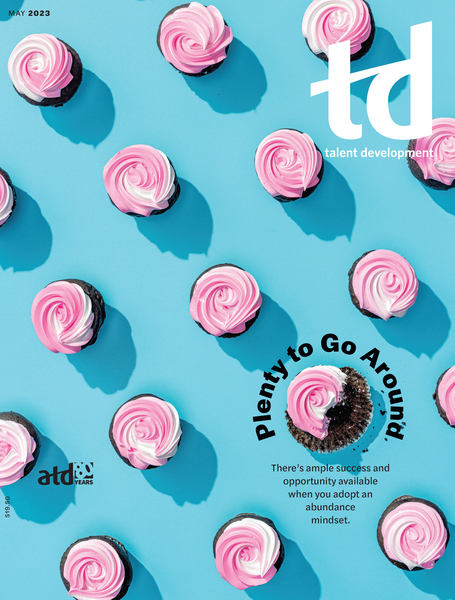TD Magazine Article
Out With the Old, in With the New?
Executives believe new workplace models are necessary to adapt to the evolving world of work.
Mon May 01 2023

Executives worldwide recognize the workplace is changing, but transforming their organizations to evolve with those changes has been difficult for them for many reasons. Deloitte's 2023 Global Human Capital Trends report, New Fundamentals for a Boundaryless World, explores how leaders deal with those challenges.
Among the more than 1,500 C-suite executives and board members who responded to the survey, 87 percent agree that finding the right workplace model is important to an organization's success. But only 24 percent think their organizations are "very ready" to develop that workplace model. That readiness gap demonstrates that even though traditional work boundaries—the way jobs are organized, where work happens, and who qualifies for specific roles—are fading away, companies are resistant to completely adapting.
"While jobs remain the primary way we define work, they are not the only way. Strict job definitions can limit workers' and organizations' ability to be agile and innovate in the face of disruption," says Michael Griffiths, principal and lead for Deloitte's learning consulting practice. "By moving to a skills-based approach, these organizations can unlock their workforce's full potential and create a workplace where people have more choice, growth, and autonomy in their careers."
The survey results reflect that mindset: Nearly all the respondents said that moving away from focusing on jobs is either important or very important to their organization's success. However, in a trend that shows itself throughout the results, only 20 percent think their company is ready to take on that challenge. That represents the largest readiness gap among all the trends in the report.
"Organizations around the world are seizing the opportunity to elevate skills well beyond ‘functional' or ‘technical,'" explains Kate Sweeney, Deloitte UK's human capital practice leader. "They are focusing on building the critical workforce capabilities that will enable their people to navigate near-constant change and disruption."
Helping to navigate the change comes with organizations acknowledging that workers' agency is increasing. Digital access to work has likewise increased since the pandemic began.
"Many workers now consider the ability to determine where they complete their work—whether in the office, at home, or elsewhere—to be an inalienable right," adds Maren Hauptmann, Deloitte Germany's human capital leader. "They see this as one of the best opportunities to co-create the future of work with their organization's leaders and to see those statements of trust in action."

